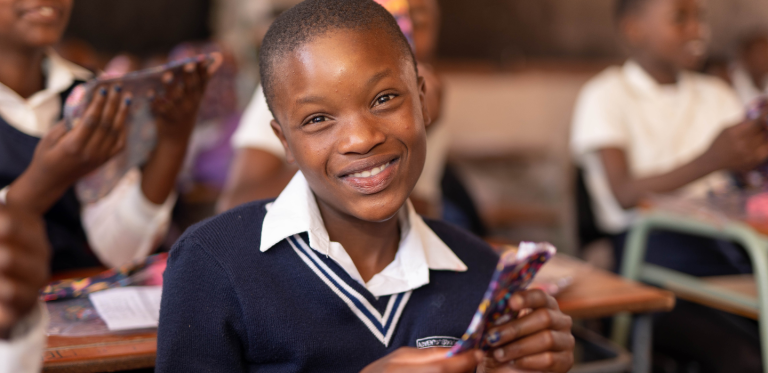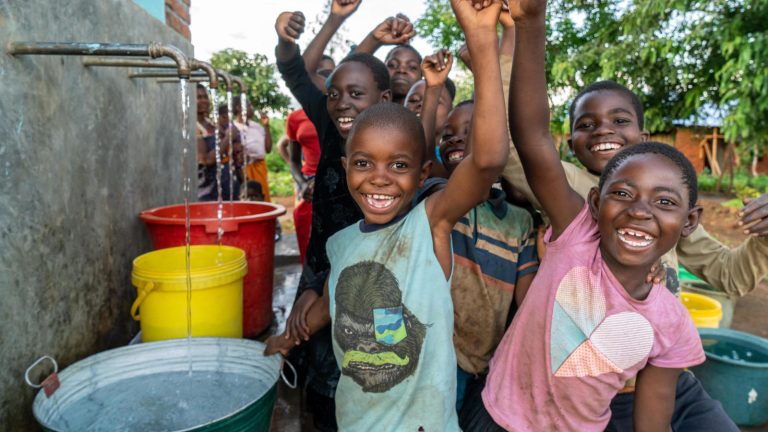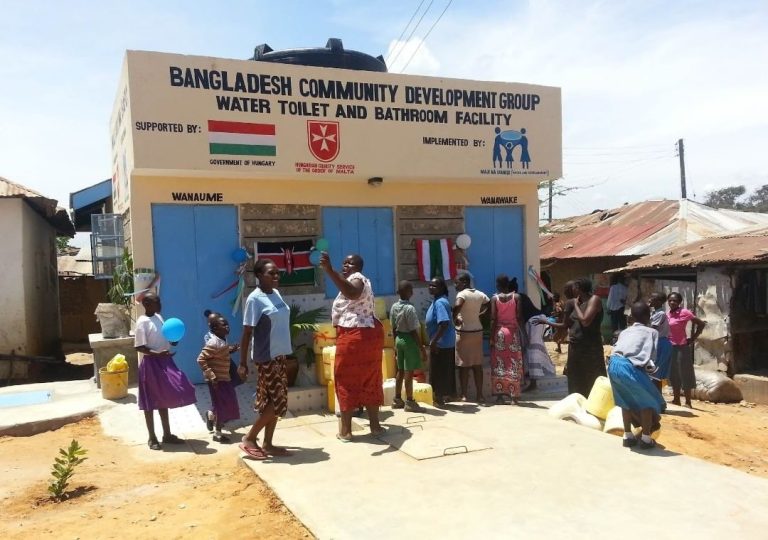In this article, we explore how a young girl turned her menstrual health story into a source of pride and empowerment — showing how menstrual health story matters for education, dignity and opportunity.
A New Chapter in My Life: From Absence to Attendance
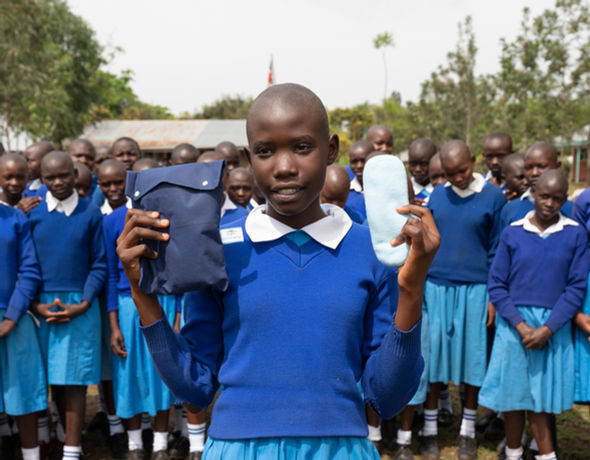
When I first got my period I didn’t know what it meant. I was fourteen, and suddenly I found myself missing school — not because I wanted to, but because I felt afraid, unprepared and embarrassed. That became my menstrual health story — the one I seldom told. But then something changed. I learned how to manage my cycle, how to speak up about my menstrual health story, and how to stop missing school because of it.
In this article you will read a detailed explanation of why menstrual health story matters, how stigma and lack of resources affect girls’ schooling, what my own story looked like, and how organisations like Maji na Ufanisi are stepping in to make sure no girl has to miss class because of her period. And you will learn how you — as a donor, partner or advocate — can support this mission.
A detailed explanation of why a menstrual health story matters
Understanding the problem — menstrual health story behind absences
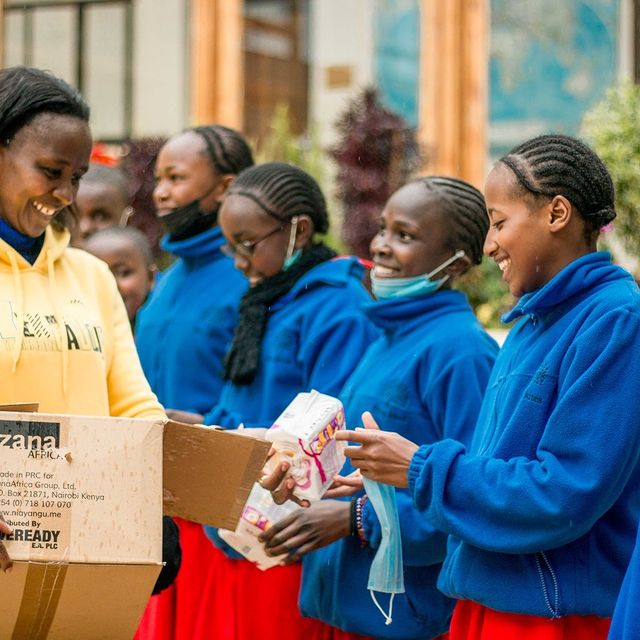
Learning about the global challenge helps us see why my own story is not unique. According to a new report by the World Health Organization and UNICEF, stigma related to menstruation remains widespread — and it causes adolescents to feel ashamed or unable to talk about what’s happening.
Schools in many countries lack proper sanitary materials, private toilets, or bins for menstrual waste.
Another study shows that stigma and norms force young menstruators to avoid social or educational activities during their period.
When I missed days of school I didn’t call it “period‑poverty” or “menstrual health gap” — I just called it “I’m sick” or “I’ll stay home”. But the root was the same: no safe place, no resources, no confidence to speak up.
The impact of a strong menstrual health story on education
My menstrual health story changed when I started to understand the facts: that menstruation is normal, that I wasn’t dirty, that missing school wasn’t inevitable. Education experts emphasise how curricula that include menstrual health reduce stigma and help girls stay in school.
According to UNICEF, less than half of surveyed girls knew about periods before their first time in some regions.When a girl learns her own menstrual health story, she can reclaim her attendance, participation and confidence.
My personal journey — the turning point in my menstrual health story
When I was fifteen I had a big stain at school. I didn’t have spare pads, I’d used tissue strips. I panicked. I went home early. Next month I stayed home again because I dreaded it happening again. I quietly thought: “Maybe this is just how it’s going to be for me.”
Then my teacher invited a guest talk on menstrual health. We talked openly about periods for the first time. We learned what products we could use, where to change, how to manage cramps and anxiety. That talk changed the course of my menstrual health story. I realised I had rights: to clean toilets, to speak up, to ask for help. I also realised I had potential: missing school didn’t mean I was weak — it meant I needed support.
From then on I began planning for my period: I kept a spare pad, I asked for a pass to the toilet when needed, I talked to my older sister. My absentee days shrank. My grades improved. My story of a teenager missing school due to her period shifted to a story of a teen girl attending, thriving, and proud of her menstrual health story.
What changed externally — support, infrastructure and awareness

My own shift came because the school provided more than the talk: they created a pad‑bank, an accessible toilet, a teacher I trusted. Globally, programs show these changes matter. Organisations working on menstrual health show that providing kits + education + infrastructure shifts attendance and empowerment.
For example, one campaign in multiple countries supplied menstrual health kits, talked to entire communities (boys, parents, teachers) to change culture.
Access to correct information, reduction of stigma, and practical support make a real difference. My menstrual health story is proof: when given the tools and knowledge, I stopped missing school.
Five key lessons from my menstrual health story
- Knowledge is empowerment – once I understood my cycle I stopped feeling powerless.
- Preparation matters – having a pad or product ready meant no last‑minute panic.
- Support systems count – a teacher, a friend, a trusted adult changed the game for me.
- Safe spaces are crucial – when I had a clean toilet and a private place I could go, my confidence grew.
- Breaking silence is healing – I spoke out. I normalized my menstrual health story. And that freed me.
How Maji na Ufanisi is helping with menstrual health story and how you can help
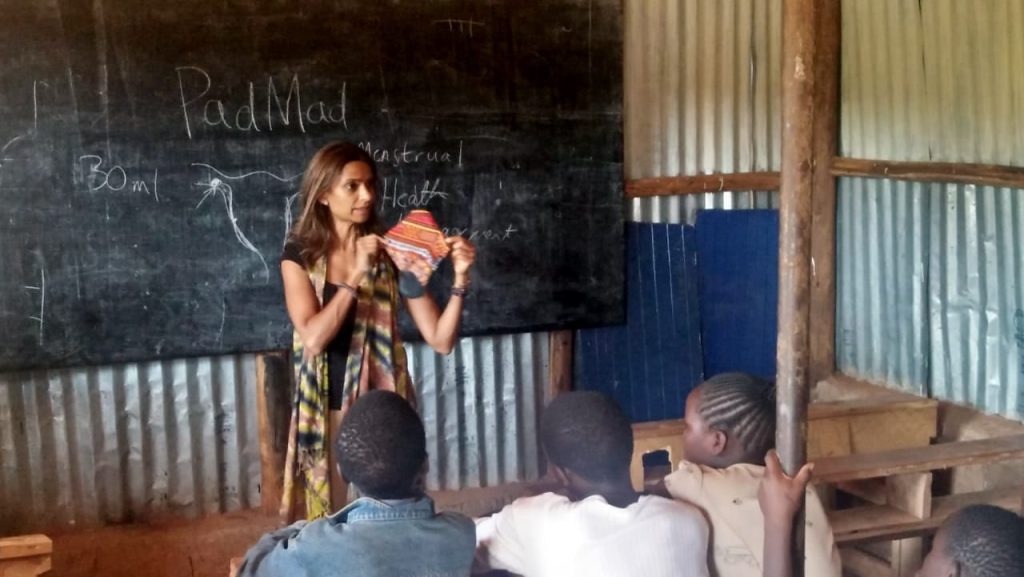
The organisation Maji na Ufanisi is active in WASH and humanitarian programmes focusing on girls’ menstrual health. They are working to ensure that every girl has the chance to write a new menstrual health story: one where she attends school, thrives, and feels proud.
They do so by:
- Distributing menstrual health kits and sanitary products in WASH‑challenged communities.
- Training teachers and school staff on how to create menstrual friendly environments.
- Supporting school infrastructure: safe toilets, disposal bins, accessible spaces.
- Running awareness campaigns to help break stigma around the menstrual health story.
How you can help:
- Donate: A gift today ensures more menstrual health kits reach girls who otherwise stay at home.
- Partner: Your company or foundation can sponsor WASH infrastructure and menstrual health education programmes.
- Volunteer: Share your time or expertise to run workshops or create resources.
- Advocate: Use your voice to support policy change in menstrual health in schools and communities.
By stepping in, you become part of dozens of girls’ menstrual health stories changing from absence to presence, from fear to pride.
Also read:Transforming menstrual hygiene in Kenya’s informal settlements
The ripple effect of one menstrual health story
My own menstrual health story did more than just help me. It changed how I looked at myself, how teachers looked at girls in class, how the conversation at home shifted. Stigma lessened. My younger cousin asked me questions I was too shy to ask before.
When one menstrual health story is told, it inspires others. Educational studies confirm: when girls speak about their experience, when boys learn about it, when communities engage, the cycle of shame breaks.
In practical terms, fewer days absent, more engagement, better mental wellbeing. That’s the power of changing a menstrual health story into something positive.
Overcoming common challenges in your menstrual health story
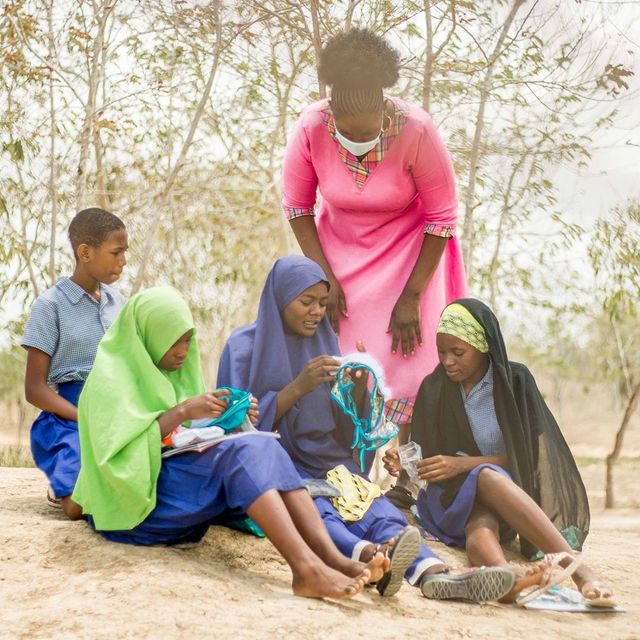
Challenge 1: Product access
Solution: Keep a spare kit at school, ask school to stock supplies, participate in donation drives.
Challenge 2: Pain or heavy bleeding
Solution: Learn about your cycle, speak with a health professional, use pain‑management strategies, talk confidently to your school nurse.
Challenge 3: Stigma and shame
Solution: Talk about it, join peer groups, share your story. You might find more girls with the same menstrual health story than you think.
Challenge 4: Locked toilets or no privacy
Solution: Advocate with school admin, partner with organisations like Maji na Ufanisi to improve infrastructure, keep a hidden emergency kit.
Challenge 5: Missed school = falling behind
Solution: Use a notebook, talk to teachers in advance, plan ahead if you know when your period is likely, and share your menstrual health story so you don’t feel alone.
Wrap‑Up: Rewrite Your Own Menstrual Health Story
Your menstrual health story doesn’t have to be one of absence, shame, fear or silence. It can be one of attendance, pride, resilience and voice. As I discovered, when a teen girl stops missing school because of her period, she opens the door to her potential, her dreams, her future.
Organisations like Maji na Ufanisi are helping ensure that girls everywhere can craft that story. And you can play a part. Whether through donation, partnership, volunteering or advocacy — you’re supporting the rewrite of countless menstrual health stories.
Together, we can ensure more girls say: “I stopped missing school.” And instead say: “I showed up. I thrived.” Join that journey. Support the menstrual health story of a girl today.
Frequently Asked Questions (FAQs)
- What is a menstrual health story?
It’s simply the narrative of how a person manages their period — including the challenges they face (like stigma, absence from school), and how they overcome them. - Why does the menstrual health story matter for school attendance?
Because poor menstrual health (lack of products, lack of knowledge, shame) leads to absenteeism, reduced participation and risk of dropping out. - How common is it for girls to miss school because of their period?
Very common in many parts of the world: studies show stigma, lack of facilities and awareness contribute significantly. - What can girls do to rewrite their menstrual health story?
They can seek information, keep spare products, advocate for safe spaces, speak to teachers, and join peer support. - What role do schools and communities play?
Schools and community infrastructure (toilets, pad banks), education in curriculum, and open dialogue reduce barriers. - How does organisation support help?
Organisations like Maji na Ufanisi help by providing kits, by training educators, by improving WASH infrastructure and normalising menstruation. - Does talking about periods really reduce stigma?
Yes — open conversations, inclusive education, and communication across genders help reduce the shame and isolation of period‑related absence. - What about boys/men in understanding the menstrual health story?
Including boys and men in discussions helps create empathy, reduce bullying and create supportive environments for girls. - What happens if a girl keeps missing school because of her period?
She may fall behind academically, risk dropping out, lose confidence and momentum — impacting her future. - How can donors or volunteers make a difference?By funding menstrual health programmes, sponsoring infrastructure, providing awareness materials, volunteering in workshops, advocating policy change — you enable more positive menstrual health stories.

